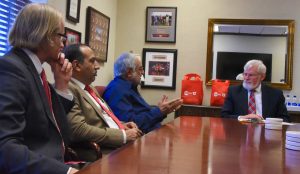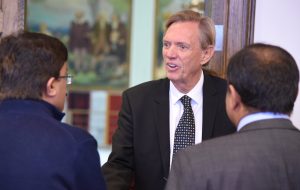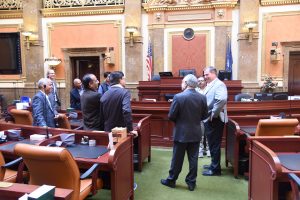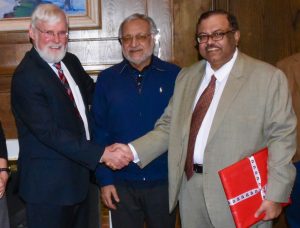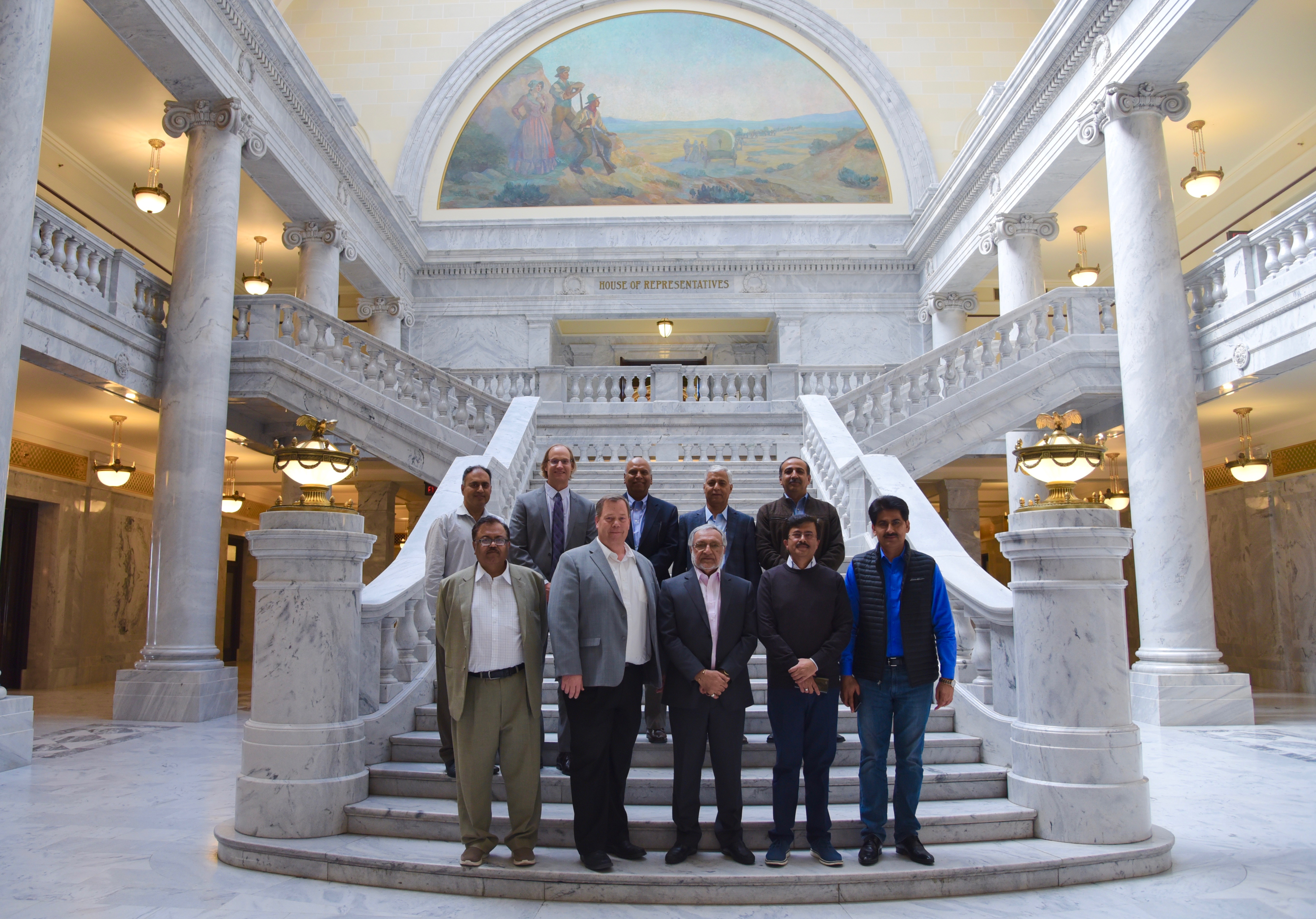

The University of Utah was honored to receive a delegation led by Mr. Hazar Khan Bijarani, Minister of Planning and Development for Pakistan’s Sindh province. The purpose of the visit was to strengthen the partnership between the U and Pakistan’s Mehran University of Engineering and Technology that began in 2015 when the two universities joined together to create the U.S.-Pakistan Centers for Advanced Studies in Water (USPCASW)—a USAID funded initiative with the goal of developing solutions to Pakistan’s water security challenges.
The delegation was welcomed by Dr. Mike Hardman, Director of the University of Utah’s Office of Global Engagement. Dr. Hardman affirmed the U’s commitment to the USPCASW program. “This is a very critical partnership for the university, and we see this relationship as mutually beneficial,” Dr. Hardman explained. “This is one of the most impactful programs for the university in its goal towards being a truly global institution.” The meeting provided the opportunity to discuss ways of strengthening the partnership and broadening the collaboration to include interdisciplinary opportunities in health, education, and technology commercialization.
At the Utah State Capitol the delegation met with key political leaders, including Lt. Governor Spencer Cox, and ranking member of the House Rep. Eric Hutchings. The meetings provided the opportunity to discuss common challenges facing both Utah and Pakistan, and the potential for collaborative research programs on an intergovernmental level to craft solutions and better inform public policy.
University of Utah President David Pershing hosted the delegation to a farewell reception. President Pershing highlighted the importance of building strong international relationships to help solve global problems. He also praised the interdisciplinary approach the USPCASW program takes in addressing issues of water security. “Knowing each other is important; building partnerships is important. The problems we face on a global scale will all require interdisciplinary and cross cultural cooperation. I think this program is a good model for others to follow.”
